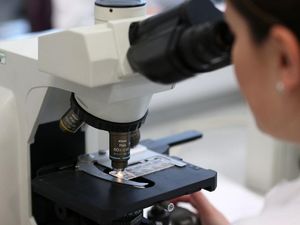Advanced prostate cancer ‘Achilles’ heel’ targeted by scientists
Drug found to push aggressive cancers into self-destructive overdrive.

An experimental drug that causes prostate cancer cells to “burn out” could offer new hope to patients with lethal forms of the disease.
Scientists targeted an “Achilles’ heel” in advanced tumours that leads them to self-destruct by going into overdrive.
They used a drug called ISRIB that has previously been shown to boost mental performance and restore memory in brain damaged mice.
The drug reverses a safety mechanism employed by prostate cancer cells to rein in protein synthesis driving their growth.
With the brakes off, the cells ramped up their protein manufacture until it reached toxic levels and they died.
The US researchers hope their discovery will quickly lead to clinical trials involving patients with advanced, aggressive and treatment-resistant prostate cancer.
Lead author Professor Davide Ruggero, from the University of California at San Francisco, said: “We have learned that cancer cells become ‘addicted’ to protein synthesis to fuel their need for high-speed growth, but this dependence is also a liability: too much protein synthesis can become toxic.
“We have discovered the molecular restraints that let cancer cells keep their addiction under control and showed that if we remove these restraints they quickly burn out under the pressure of their own greed for protein.”
The scientists found that a molecule called P-eLF2a “tuned down” protein production in aggressive prostate cancer cells.
In tests on mice with human prostate tumours, ISRIB effectively blocked the molecule, forcing the cancer cells to go into overdrive and self-destruct.
The treatment caused existing tumours to shrink, slowed down cancer progression, and extended life-span.
ISRIB is thought to target aggressive cancer cells, leaving healthy cells alone and producing few side effects.
Dr Crystal Conn, another member of the UCSF team, said: “The only side effect we’re aware of is that this drug might make you smarter.”
The research is published in the journal Science Translational Medicine.





